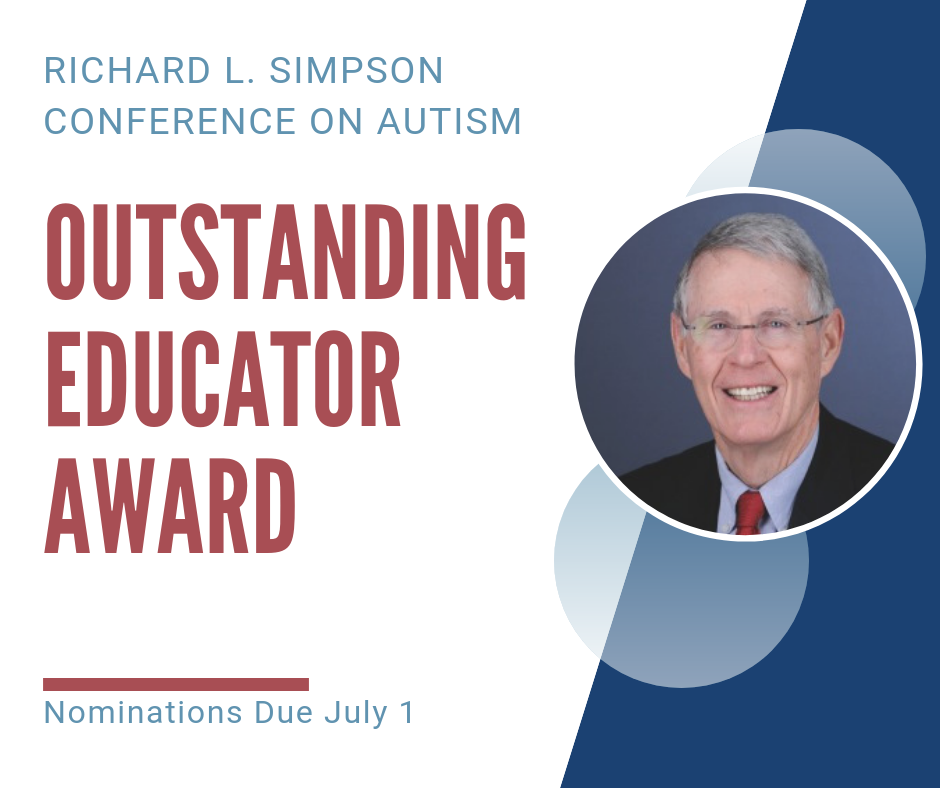Friday Session Details
ParaImpact: Teacher-as-Coach to Support Paraeducator Collaboration and Training (BCBA CEUs Available)
Students with moderate to severe disabilities, including autism, often require more intensive and specialized supports to receive meaningful access to educational programs. To address their needs, there has been a substantial increase in the allocation of paraeducators to work with students with disabilities, with recent national statistics indicating that special education paraeducators outnumber teachers by 50,000. However, paraeducators are often inadequately prepared to implement evidence-based practices for students with significant needs. ParaImpact seeks to address this challenge through implementation of a practice-based coaching model, with teacher-as-coach, to provide ongoing training and support to paraeducators. Preliminary evidence and implications for practice will be presented. (Intermediate)
Rose Mason, PhD, BCBA-D, Assistant Professor, Purdue University, West Lafayette, IN
Video Performance Feedback for Educators of Children and Adolescents with ASD
Video performance feedback, also termed video analysis, is a method of professional development aimed at improving skills by analyzing self-recorded videos. In this presentation, educators of individuals with autism will learn how to incorporate video performance feedback into their work to improve their skills and, ultimately, student outcomes. The presenter will share practical tips for implementation and review helpful resources. This presentation will target a variety of educators working with individuals with autism, including in-service teachers, paraprofessionals, teacher educators, and administrators. Although the presenter will share ways video performance feedback has been used to target specific instructional skills, attendees will be encouraged to take advantage of the versatility of video performance feedback to target instructional practices that are meaningful to them. (Beginner, Intermediate)
Kristi Morin, PhD, BCBA-D, Assistant Professor, Lehigh University, Bethlehem, PA
Addressing Sensory Issues in Individuals with Autism Spectrum Disorders
What school based sensory interventions are effective to increase participation in school activities or decrease negative behaviors at school for students with autism spectrum disorders? This session will focus on a variety of sensory related interventions that can be easily implemented in a classroom/school setting. Participants will be provided with various strategies to address specific behaviors with all interventions intended for easy/reasonable application in a school setting. Information will be provided to participants to help know when and how to use the strategies provided as well as how to decide if the intervention is effective for a student.
Malinda Forsberg, MAEd, Doctoral Student, UW-Madison, Milwaukee, WI and Lisa Robbins, PhD, Associate Professor, Coordinator, Special Education, University of Central Missouri, Warrensburg, MO
Visual Supports: More Than Just a Schedule (Two Part Session)
If there was one evidenced-based strategy that you knew had positive outcomes for every student on your caseload, would you use it? We know our students with ASD typically have strengths in visual processing, so lets talk about targeting interventions that capitalize on this strength. Come learn about the power of visual supports and walk away with something printed (and laminated!) that you can use in your classroom on Monday!
Lindsey Lovekamp, MSEd, Autism Resource Specialist, Megan Menton, MS, CCC-SLP, Autism Resource Specialist, Edna Smith, PhD, Autism Resource Specialist, Project ACCESS Missouri State University, Springfield, MO
The PEERS Curriculum for School Based Professionals: What Can This Program Do for Your Students?
Learn about this evidence-based curriculum designed to support social skills for adolescents with autism. This educator and family friendly program supports skills such as two-way conversations, electronic communication, using humor, handling arguments, and minimizing rumors and gossip. Structured lessons include talking points, role-play, videos, and parent components. Review the outcomes of targeted populations to determine whether is a good fit for your students. (Beginner)
Lisa Holt, MS, State Trainer, TASN Autism and Tertiary Behavior Supports, Sedan KS & Gail Ferguson, MAEd, State Trainer, TASN Autism and Tertiary Behavior Supports, Derby, KS
WTF? Practical Functional Assessment for Special Education and Related Professionals (BCBA CEUs Available)
Functional behavior assessments (FBA) allow educators to design effective and efficient plans to address problem behaviors and teach positive behaviors. Despite their value, FBAs can feel overwhelming and unrealistic for educators in the classroom. This session will provide a practical guide for educators to identify the function of a behavior and use this information to design behavior support plans that teach and reinforce functionally equivalent positive behaviors and prevent problem behaviors from occurring. Educators will leave this session with practical and realistic strategies for leading or contributing to an FBA as a special education teacher, including low-effort strategies for collecting and analyzing data, high-value interventions to teach positive behaviors, and efficient methods for reinforcing positive and replacement behaviors. (Beginner, Intermediate)
Gretchen Scheibel, MS, OTR/L, BCBA, Doctoral Student, University of Kansas, Lawrence, KS
What Did You Say? A Collaborative Model to Improve Augmentative and Alternative Communication for Students with Autism (BCBA CEUs Available)
Special educators often collaborate with speech-language pathologists to provide augmentative and alternative communication (AAC) interventions to students with autism. However, collaboration that results in measurable and timely student benefits can be challenging. I will present a step-by-step model for collaboration that ensures effective AAC interventions for students with autism. (Beginner)
Heather Forbes, CCC-SLP, BCBA, Doctoral Fellow, University of Kansas, Lawrence, KS
What a Pisser! Intensive Toilet Training for Learners with Autism (BCBA CEUs Available)
This session summarizes intensive toilet training (ITT) methods and implementation in public schools. Guidelines for preparing and initiating ITT will be described. Attendees will learn to select procedures according to learner characteristics and instructional settings. Additional guidance regarding progress monitoring to resolve toileting problems are included with strategies for promoting independence. (Intermediate)
Jenee Vickers Johnson, MSEd, BCBA, Doctoral Fellow, University of Kansas, Kansas City, MO
Teaching Social Skills with Social Narratives (Two Part Session)
Students across the Autism Spectrum Disorder are known to have difficulty with pragmatic skills. Research indicates the best predictor of life outcomes (level of educational attainment, employment, criminal activity, substance abuse, and mental health) in young adulthood is their social functioning in Kindergarten, so how do we help? Social Narratives is one evidenced-based practice that can be used to teach social skills. We will talk about how to get it done, and then give you time to do it!
Lindsey Lovekamp, MSEd, Autism Resource Specialist, Megan Menton, MS, CCC-SLP, Autism Resource Specialist, Edna Smith, PhD, Autism Resource Specialist, Project ACCESS Missouri State University, Springfield, MO
Supporting Paraprofessionals in Inclusive Environments: Understanding the Need for Consistent Interventions
As educators, we understand the need to implement interventions and strategies for students on the autism spectrum. However, we are so busy putting out fires that we forget it is the paraprofessionals that are the ones that implement the individualized plans with the students. To increase the use of these plans with students, it is important to define the reason why we use the strategies we use. This session will provide information on "why" it is so important for everyone working with students on the autism spectrum to implement evidence-based practices consistently and reliably. The focus will be on helping teachers and administrators provide "why" using individualized plans will increase engagement of students while decreasing negative behaviors in the inclusive classroom. (Beginner, Intermediate)
Jennie Lauber, PhD, Associate Professor, Emporia State University, Emporia, KS


